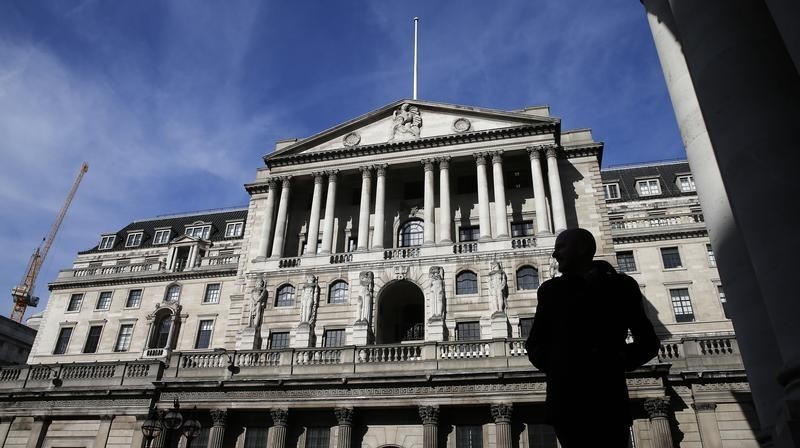By David Milliken
LONDON (Reuters) - New Bank of England policymaker Gertjan Vlieghe will retain a financial interest in one of the world's biggest hedge fund firms while he sets interest rates, an arrangement that Britain's finance ministry said posed no conflict of interest.
Some economists privately expressed surprise when the ministry said on Tuesday that Vlieghe, who joins the Monetary Policy Committee on Sept. 1, would still receive income from his current employer, Brevan Howard, whose traders bet on rate moves.
On Wednesday, people with knowledge of the arrangement said Vlieghe would retain an interest in a Brevan Howard vehicle that pays long-term incentive payments.
This allows him to receive future dividends based on the firm's assets under management, though he will have no contact with investment funds or other operations.
"He ceases to be an active partner, but he continues to have a residual interest," one person told Reuters. "He is not an active partner, so the idea of a conflict does not come into it."
Other people with a similar status at Brevan Howard include its former star trader Chris Rokos, who started a rival fund.
The BoE's rules state that "members of the MPC may not retain any ... interest, whether or not remunerated, which is, or could be seen to be, in conflict with membership of the Committee", and this should be assessed on a case-by-case basis.
A finance ministry spokeswoman said the ministry and the BoE had considered potential conflicts of interest before finance minister George Osborne appointed Vlieghe.
The arrangement is likely to be studied by the British parliament's Treasury Committee, which monitors the BoE. It is due to hold a regular hearing on the appointment in September.
Last year, the committee prompted the BoE to tighten its code of conduct after concerns about the investment activities of an external member of its Financial Policy Committee, Richard Sharp, a former Goldman Sachs (NYSE:GS) banker appointed by Osborne.
Former BoE policymaker Andrew Sentance, who served on the MPC from 2006 to 2011, said a flexible approach to perceived conflicts of interest was needed to ensure that enough external MPC members, who are meant to act as a counterweight to senior BoE officials, came from the private sector as well as academia.
Sentance recalled how he had been required to give up his share options in British Airways when he ceased to be its chief economist and joined the BoE.
"When I was there, the perceptions (of conflict of interest) were the driving force. I think you have to remove actual conflicts of interest. Whether you have to have everything so nobody could point a finger at anybody is a genuinely difficult issue, if the MPC is to draw on private-sector experience."
A major reason Vlieghe was not required to fully sever his ties with Brevan Howard was that the partnership -- unlike company shares -- is an illiquid asset that cannot be sold, the person familiar with the arrangement said.
"He could basically say 'I don't want it', but as it is potentially a lot of money, and he is not paid a huge amount of money by the Bank of England, I think that would be unreasonable," the person said.

External MPC members earn around 137,000 pounds a year.